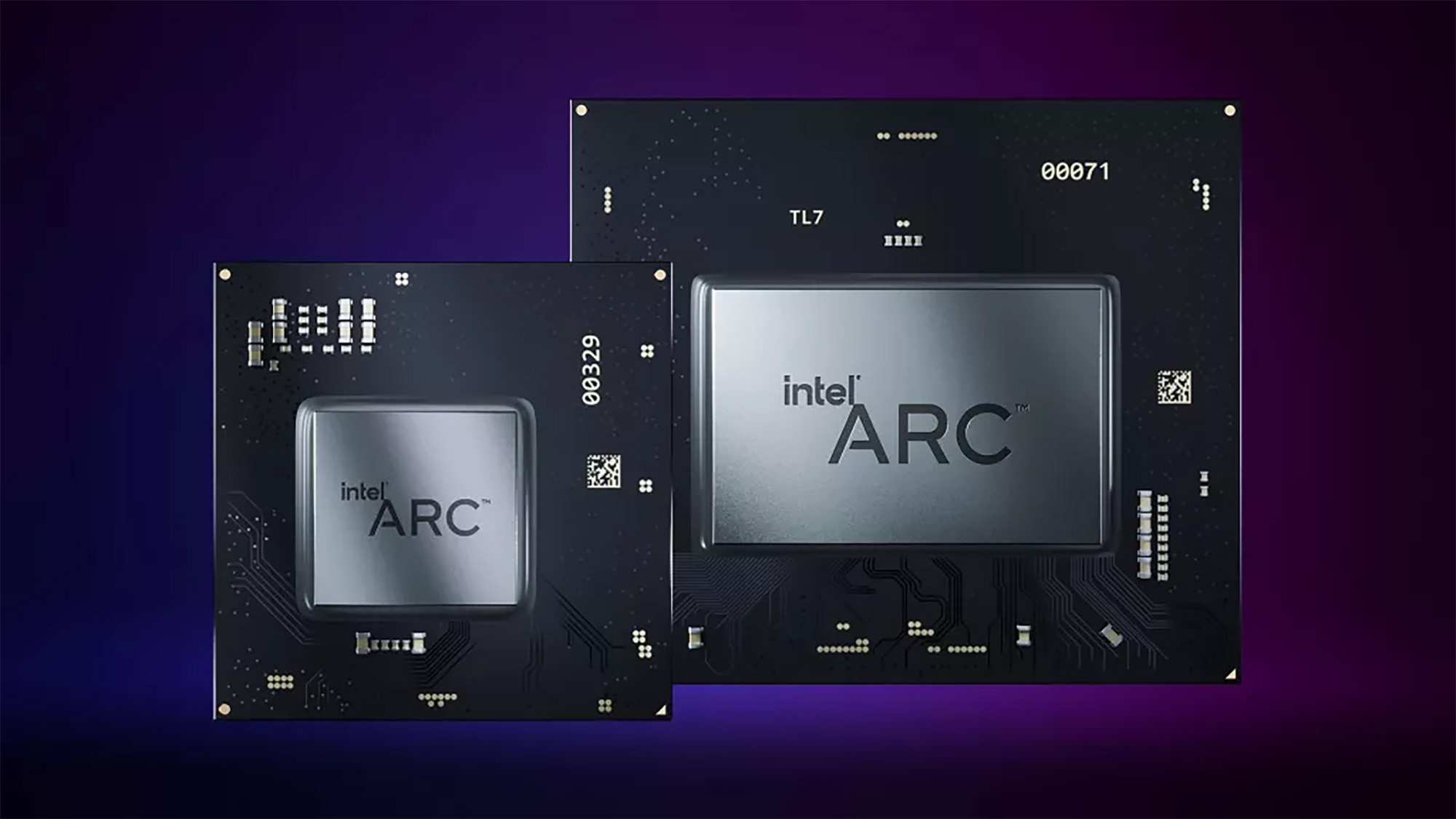Intel Arc GPUs could be canceled already
Rumor has it that Arc discrete graphics cards are effectively ‘finished’

Intel’s Arc discrete graphics cards might be on the verge of being canned, or at least that’s what one prominent leaker believes.
Renown YouTuber Moore’s Law is Dead (MLID) explains that the overall feeling from Intel insiders is that Arc GPUs, which kicked off this year with Alchemist models, are not going to survive for much longer.
More specifically, MLID cites a source – at the executive level – who claims, rather brutally, that Arc is “finished”, and another source who says simply that Intel is ending its Arc discrete efforts.
That really couldn’t be any clearer, but of course, we must remember that this is just chatter from the grapevine, so we must still take it with extreme caution. As MLID make clear in the intro to the video announcing this, it’s not the news anyone wants to hear, himself included.
Analysis: We hope this isn’t true – and there may be other possibilities for Arc
So, let’s not get carried away here, but this obviously doesn’t sound good. We had heard rumors that Intel could cancel its discrete Arc project recently, but following that, Intel was pretty quick to go on the defensive and assure us that Arc graphics cards are very much here to stay, and that work had begun on second-gen Battlemage GPUs already, full-speed ahead style.
MLID does note that very recently a source was talking about Battlemage progressing, but that Intel was looking at not producing a whole range of graphics cards, as with Alchemist (A7, A5, A3), but maybe just low-end models (which would be B3). That would keep costs down, and allow for drivers to be further honed, with the latter software side of the equation having been a big problem for Intel, and one of the main reasons for the delays and disappointment around the Arc Alchemist rollout.
However, this was the word on the grapevine previous to hearing from these new sources who are essentially saying that Arc discrete appears to be finished.
Sign up for breaking news, reviews, opinion, top tech deals, and more.
Looking at the rollout of Alchemist, which has been a labored and stuttering affair to put it mildly, has not given us an optimistic outlook for Intel’s discrete GPUs – we have in the past ourselves declared that the cards looked doomed from early on. And framed in the light of Intel’s recent financial struggles, with a weighty negative factor on the balance sheet being Arc, it wouldn’t exactly be a surprise to see the discrete project get canned – or at least be severely cut back.
Remember, Intel CEO Pat Gelsinger has just said that the firm’s performance is likely to worsen before it sees an improvement, and that further steps are going to be taken to cut down Team Blue’s product portfolio. Seemingly, if this rumor is right, ditching Arc GPUs could be part of that streamlining.
As MLID puts it, Intel just can’t afford to subsidize a division that it feels won’t make the company money for too many years, given the overall difficult fiscal waters the firm is currently navigating.
Now, this may not turn out to be true, so let’s hope that’s the case – but if Arc is to continue, it sounds like it will most probably be in a much more cut-down form than the grander plans of an entire range of laptop and desktop GPUs as put forward with Alchemist. MLID does theorize that maybe we will see a Battlemage discrete product, like some kind of low-end laptop graphics solution, but what we seemingly won’t get is a flourishing range of GPUs to meaningfully challenge AMD and Nvidia.
Darren is a freelancer writing news and features for TechRadar (and occasionally T3) across a broad range of computing topics including CPUs, GPUs, various other hardware, VPNs, antivirus and more. He has written about tech for the best part of three decades, and writes books in his spare time (his debut novel - 'I Know What You Did Last Supper' - was published by Hachette UK in 2013).